Amezish proves that less is indeed more
The song ‘Lalit’ flips the script on how fusion music is perceived
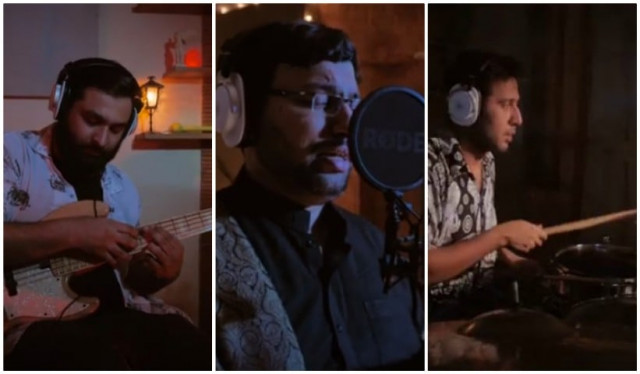
Fusion music at its core stems from the idea of differentiation. It revolves around the obsession with taking elements from varied disciplines which may or may not be related and fashioning something entirely new out of them. It’s a shame that for something that is essentially the act of experimentation and exploring new avenues, fusion music is identified as a single ‘genre’. For the most part, lazy curators, record labels, and more recently streaming services are to be blamed for this.
That being said, if one were to take the example of Pakistan, local artists to have begun to view it in a linear fashion. Truth be told, over the year's fusion music has unwittingly managed to pigeon hold itself. Not to say that the artists have lost their longing to innovate. But in order to achieve something, ‘groundbreaking’ they ironically use the same approach of excessive layering and end up sounding derivative.
With that said, certain acts have sprung that have taken a rather fresh take in fusing Western instrumentation with Eastern Classical. One such outfit goes by the name Amezish ( meaning amalgamation) that has adopted a strip down approach in this regard. Working as a trio, Amezish consists of veteran session musicians, Waleed Ateeq on bass, who has played for Meekal Hassan Band and Shiraz Uppal among many, Lala Ahsan of Badnaam fame on drums, and Mohammad Aizaz on vocals, who aside from being a mainstay on the country’s classical scene has worked with funk fusion band Mughal-e-Funk and is a teacher to some of the prominent singers in the industry.
Working on the mantra of ‘less is more’ Amezish released its debut track Lalit last past month. Taking it’s name from the raag its sung in, Lalit’s complexity lies in the overall minimalism, with the track comprising of only drums, bass, vocals and tanpura. “Fusion music across the world is done with a really extended set up. Amezish is a new type of fusion music where we are trying to prove that less is more,” Aizaz told The Express Tribune.
“Back in the day, you could experience the vocals in their entirety. But in recent years, I feel that excessive instrumentations end up becoming overbearing. We however have a very minimalistic setup, with the bass, drums and vocals complimenting each other beautifully. Amezish wants to set this standard that all musicians are on the same footing. You will see in our songs that everyone has equal representation,” he added.
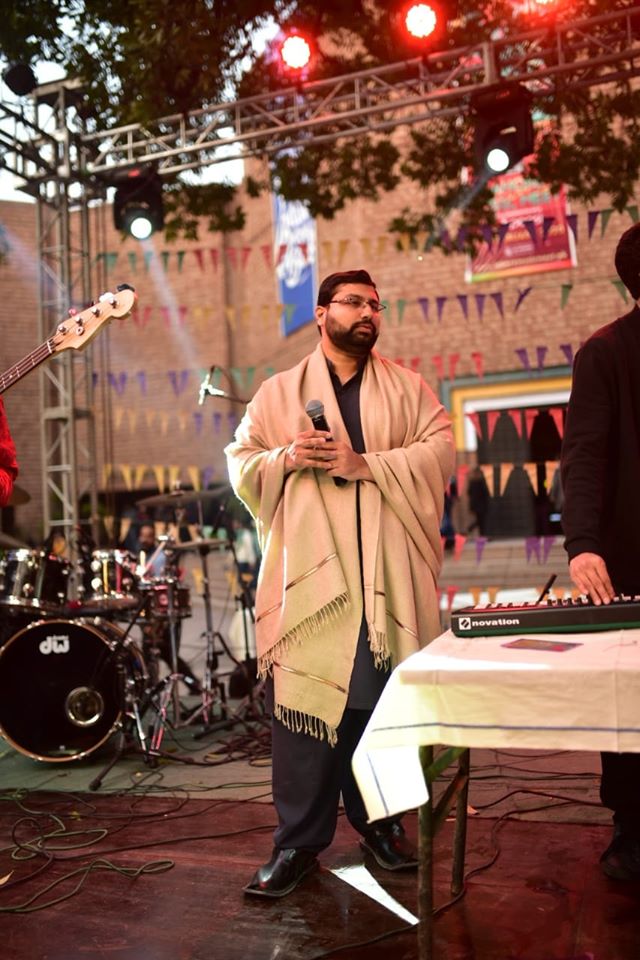
While admitting that the trio formed out of spontaneity, Ahsan stresses that to keep the band the way it is was an intentional effort. “It was a conscious decision to keep the band setup minimalistic. If you listen to Aizaz, even if instruments aren’t playing, he is enough. The same goes for Waleed. We focus on keeping everything less so each element in the band is able to shine properly. Keeping this in mind, we decided that for the time being, at least for the first 10-12 songs we will maintain this arrangement,” he said.
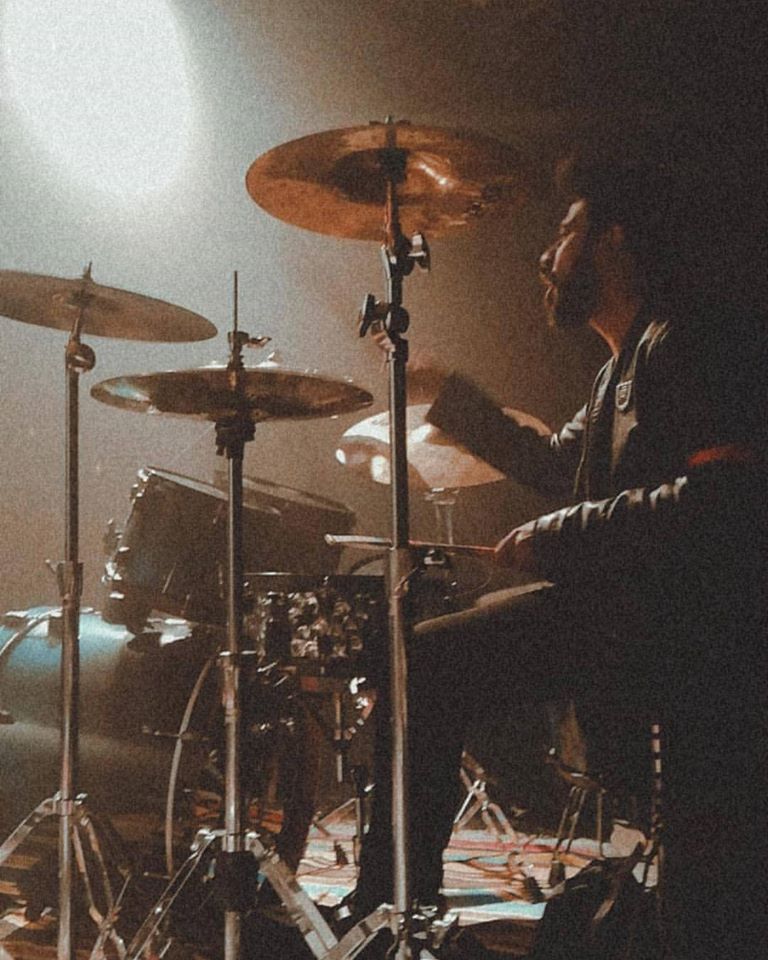
At the same time, the band doesn’t want its uniqueness to turn into gimmickry that ends up restricting the flow. For Waleed, at the end, it’s the music that will carry precedence over all other aspects.
“Yes, we had thought to prevent our soundscape from becoming rushy. But at the same time, we do not want to make it technical for the sake of it. It’s not even necessary that only us three will play in the future. It’s the music that will prevail. Wherever it will guide, the band will go in that direction,” Waleed said.
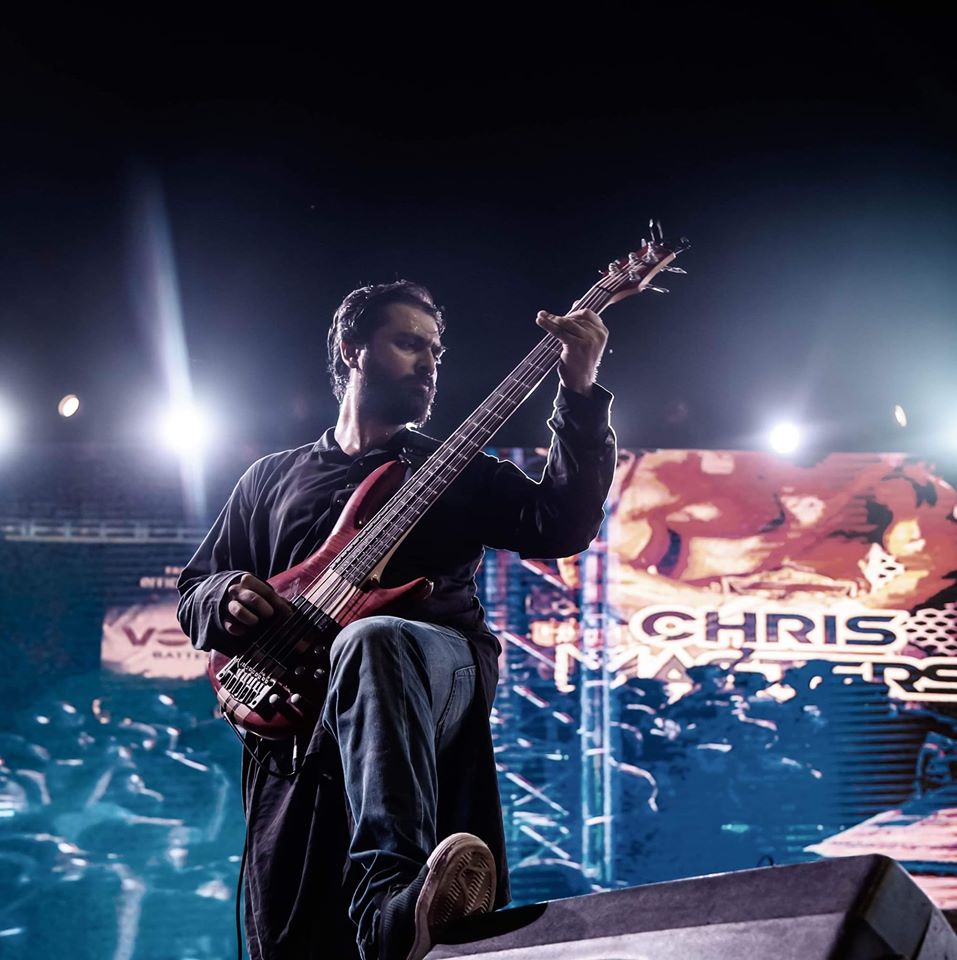
Reiterating the same, Aizaz said, “Our priority was always the quality of music as opposed to the cosmetics. The quality of music was so important to us that even naming the band was second to us. The name Amezish came after Lalit was made.”
Talking about the band’s upcoming song, Aizaz noted that it is one that would “blow drummers and percussionists away.” “ We are exploring a new concept that hasn’t been done in Pakistan before. Approaching polyrhythms in a completely different way,” he said.
Have something to add to the story? Share in the comments below.

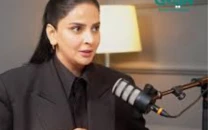

















COMMENTS
Comments are moderated and generally will be posted if they are on-topic and not abusive.
For more information, please see our Comments FAQ